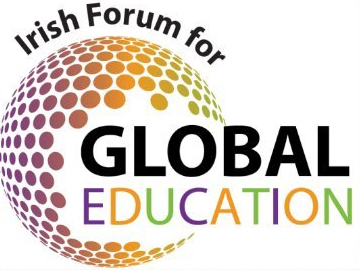Early childhood care and education (ECCE) is an important part of the education cycle, but it often does not get the attention and priority it deserves. ECCE addresses the period from birth to 8 years old and it occurs at a vital stage for children and, when it is of good quality, can help them achieve their full potential. It can potentially lay the foundation for good health and nutrition, learning and educational success, social-emotional learning, and economic productivity throughout life. Despite the evidence for these social, human and economic developmental gains, it is still often not given high priority in education policy and investment and, where it does exist, may exclude marginalized groups. ECCE is extremely vulnerable in that much of it is privately provided which can mean it is not accessible to those who cannot pay for it.
It is worth taking a look at UNESCO’s understanding of ECCE to get a better sense of its importance to education more broadly. UNESCO regards ECCE as a fundamental and integral part of the education system and a solid foundation on which to build lifelong education, lives and careers. All of its work in this area is in line with target 4.2 of Sustainable Development Goal 4 which aims to ‘By 2030, ensure that all girls and boys have access to quality early childhood development, care and pre-primary education so that they are ready for primary education.’ To further advance this target, UNESCO established a new Global Partnership Strategy to bridge the gap and ensure that quality ECCE, early primary school years, and family education, are available for all children.
UNESCO’s work starts from the premise that ‘Learning begins at birth’ introduced into the World Declaration on Education for All Jomtien declaration. As inscribed in the Convention on the Rights of the Child (1989), young children have the right not only to survive but to thrive and develop to their fullest potential. In 2000 the international community at the World Education Forum (Dakar 2000) committed itself to ‘expanding and improving comprehensive early childhood care and education, especially for the most vulnerable and disadvantaged children.’ Ten years later, UNESCO’s World Conference on Early Childhood Care and Education (Moscow 2010) warned that the EFA Goal on ECCE was ‘at great risk of not being achieved by 2015 unless urgent and resolute action is taken’ and highlighted ECCE as a social, human and economic development imperative. The SDG4 – Education 2030 agenda marked the first global commitment to ECCE beyond the education community and was followed by other international and regional initiatives and statements
The final report of outgoing UN Special Rapporteur on the right to education, Ms Koumbou Boly Barry, addressing the right to early childhood care and education has just been published. The report highlights the wide ranging ‘developmental, educational, social, cultural and economic benefits’ of ECCE to children, their families and wider society, and urges states to recognise and enshrine ECCE rights from birth until primary school, significantly calling for a more specific legal instrument to be established to complement the protections already established in international human rights instruments.
The report adopts a rights-based approach to ECCE, acknowledging the existence of this right as part of the universal right to education under various International human rights treaties, including the Convention on the Rights of the Child, International Covenant on Economic, Social and Cultural Rights (ICESCR), the Convention on the Elimination of all forms of Discrimination against Women and the International Convention on the Protection of the Rights of All Migrant Workers and Member of Their Families.
Ms Boly Barry recommends that: ‘All States and stakeholders work to define and enshrine a right to ECCE, from birth until primary school, in a legally-binding human rights instrument. Without derogating from already established rights, and recognising the multisectoral nature of that right and the changing nature of the needs of the child from birth to primary school, the contents of the right should be determined in a wide-ranging consultative process, including States, communities, and families, civil society, international organisations, and academia, and should include perspectives from actors working in human rights, development, and humanitarian affairs, among others’. (See link below)
The Special Rapporteur is also concerned about the growing phenomenon of privatisation, as well as lower levels of public expenditure on ECCE than other educational levels. She believes that the failure to recognise ECCE in the same way as other levels of education and the lack of a rights-based framework has led to the increase in private provision.
You can read the report here.
UNSR_Report_ECCE_A.77.324_Oct2022_EN.pdf (right-to-education.org)


